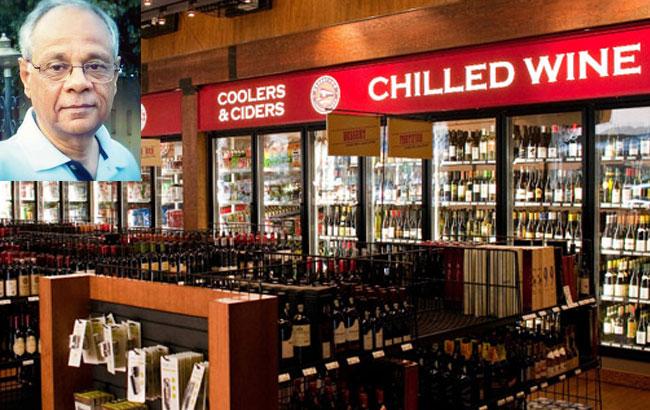Prohibition Inevitably Boils Down To Revenues

Mahesh Vijapurkar
Erstwhile Andhra Pradesh went through its flipflop on liquor. Prohibition of arrack in 1993, total Prohibition in 1995 were imposed only to be relaxed in 1997 because of loss of revenue from taxes on booze. Bihar introduced it recently to be struck down by the courts, and brought back under a new law. It seems Prohibition is a policy football.
Tamil Nadu has had Prohibition on and off, and is now heading towards it once again by reducing the number of shops and the hours of sale. Its legacy of Prohibition from Presidency times was first relaxed in 1971, nut tightened in 1974, to be lifted in 1981. From time to time, the country-made stuff was allowed and banned. Now all political parties swear by it but view at how it should become dry differently.
Maharashtra, another major state, is getting into the same league, though there is no talk of Prohibition yet officially, since Morarji Desai’s time, one needs a permit to consume liquor. That this permit requirement became a joke is common knowledge. Health reasons were to be cited for consuming, and now restaurants can issue them, doctor’s prescription not even mentioned.
After introducing a liberal policy announcement that a person could stock substantial quantities at home months ago, Maharashtra has now reversed it limiting it to two ‘units’. A unit is equal to one litre liquor with 40 percent of pure spirit. The foxtrot has not been explained but apparently, Anna Hazare has influenced this for the state excise commissioner has met him twice during this process.
Earlier rule enabled storage of 48 beer bottles of 650ml each, or 24 wine bottles (750ml), or 16 hard liquor bottles (750 ml) at home for a month. Permit holders could keep a combination of all three categories, provided the total content in all bottles did not exceed 12 units of pure spirits. This meant the Hazare-led anti-liquor lobby has made significant headway. For Devendra Fadnavis, having the loose cannon on his side makes sense.
Because revenues of about Rs13,500 crore by excise, and another Rs8,000 crore by way of VAT in the previous fiscal, it would be difficult to even imagine a Prohibition being in the offing because the state is already under huge debt, and has squandered money by unconscionably reimbursing toll for cars to the contractors. Remember Chandrababu Naidu’s fiscal rational for lifting Prohibition? It boiled down to the cash in the exchequer.
Bihar with Nitish Kumar’s insistence on Prohibition is courageous, including the draconian aspects of it, and has taken into account the loss of about Rs 4,000 cr per annum as revenue from liquor. As NTR did, he balanced then social consequences of reckless alcohol consumption and the requirement of funds to run a government. But the point is, do governments which site these revenues run governments efficiently, making every rupee count.
Enforcing Prohibition has never been easy, even in Gujarat which at least for pretence, swears by Mahatma Gandhi. Surrounded by liberal alcohol consumption states like Rajasthan, Madhya Pradesh, and Maharashtra, its breach is normal except that in cities one does not see a person swaying and tottering on streets. One needs to where to get it from, and then a swig is entirely possible. There is a slight relaxation to serve delegates of conventions some cheer.
Prohibition or not, one concern remains: illicit distillation which could be far more dangerous than one can imagine because of the toll of lives it could take due to adulteration. Governments are less worried about it than the liquor trade is for it cuts into their business. I am aware, how, in Andhra Pradesh, decades ago, it was the liquor contractors who acted as unofficial proxies of government to raid distilleries; the babus just signed the papers to make them official.





